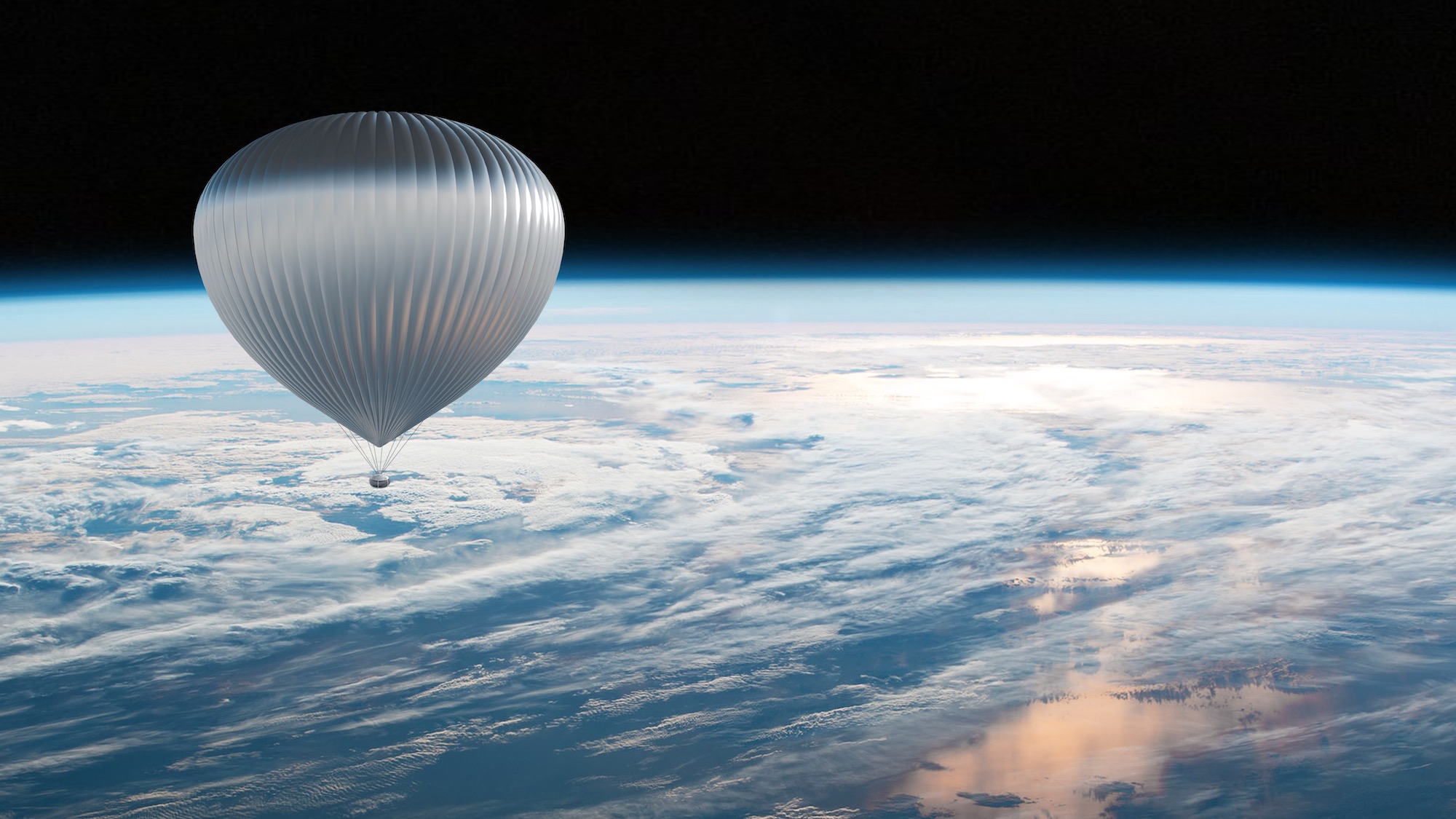

This year marks the 250th anniversary of the first human hopping aboard a hot air balloon. But Jean-Francois Pilatre de Rozier only hovered about 85 feet above the ground, so it’s safe to say he would be stunned at what his country’s modern denizens are planning. As CNN reported on Thursday, a French company called Zephalto aims to begin “edge of space” hot air balloon tourist sojourns as early as next year—for $130,000 a seat.
After ponying up the hefty price tag, passengers will board Zephalto’s pressurized capsule, Celeste, which is attached to a massive, helium-filled stratospheric balloon. Over the course of roughly ninety minutes, the balloon will ascend at 4 meters per second to an altitude of 25 kilometers (about 15.5 miles). Once at the edge of space, tourists will enjoy a fancy meal during their three-hour hover time in front of 7-square-meter window views of the Earth’s curvature before descending back down to terra firma.
[Related: How will NASA keep up with space tourism?]
Other high-profile space tourism ventures such as Blue Origin and Virgin Galactic travel much higher than the capabilities of even a high-end hot air balloon such as Zephalto’s. In July 2021, Virgin Galactic’s founder, Richard Branson, soared 86 km above Earth. Just one week later, Blue Origin took its co-founder and Amazon CEO Jeff Bezos above the Karman Line, the internationally recognized (if somewhat disputed) boundary for outer space.
Unlike those high-profile space tourism ventures, however, Zephalto bills itself as being a much more eco-friendly alternative. According to its official description page, only 26.6 kg of CO2 are purportedly needed for a single journey—the lowest amount required for a space flight, says the company, or akin to “as little as the production of a pair of denim trousers.” By comparison, a single suborbital rocket launch can put out as much as 300 tons of CO2 into the upper atmosphere during its journey.
[Related: Blue Origin brought the first official tourists to space.]
As reservations quickly fill for the trips—Zephalto told CNN it’s already booked out until mid-2025. The company’s founder recently explained they were working closely with France’s space agency, CNES, alongside partners at Airbus to ensure all safety and logistical regulations are met. Once in full swing, Zephalto aims to launch as many as 60 flights per year, each with six passengers alongside two pilots.
And if the six-hour-total journey and fancy meal aren’t enough to sell you on a $130,000 ticket, Zephalto says it’s throwing in complementary psychological counseling ahead of the outing to help deal with what’s known as the “overview effect,” the existential weight that reportedly comes from viewing the entirety of Earth from high above its surface.